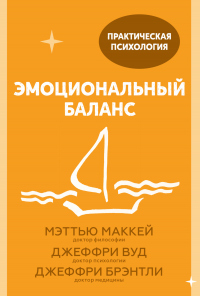Читать книгу "Что делает нас людьми - Леон Виндшайд"
Шрифт:
Интервал:
Закладка:
245
Ärzteblatt, 09.04.2019. Jeder Zweite fühlt sich von Burnout bedroht // aerzteblatt.de/nachrichten/92312/Jeder-Zweite-fuehlt-sich-von-Burnout-bedroht.
246
Statista, 29.11.2019. Statistik zu Burnout-Erkrankungen in Deutschland // de.statista.com/statistik/daten/studie/239872/umfrage/arbeitsunfaehigkeitsfaelle-aufgrund-von-burn-out-erkrankungen/.
247
Vallerand, 2010.
248
Vallerand, 2003.
249
Vallerand R. J. On the Two Faces of Passion: The Harmonious and the Obsessive // P. A. O’Keefe, J. M. Harackiewicz, eds. The Science of Interest. Springer International Publishing, 2017; Curran T. et al. The Psychology of Passion: A Meta-Analytical Review of a Decade of Research on Intrapersonal Outcomes // Motivation and Emotion, 2015.
250
Рисунок адаптирован из: Vallerand R. J. et al. On the Role of Passion in Performance // Journal of Personality. 2007. Vol. 75. No. 3. Pp. 505–534.
251
Vallerand R. J. et al. On the Role of Passion for Work in Burnout: A Process Model // Journal of Personality, 2010.
252
Vallerand R. J. The Role of Passion in Sustainable Psychological Well-Being // Psychology of Well-Being: Theory, Research and Practice, 2012; Vallerand, 2017.
253
Change Life, 01.06.2015. It’s What You Can Contribute // Youtube // youtube.com/watch?v=WRYRBGX4lVM.
254
Newport C. A Steve Jobs Quote Perfectly Sums Up Why Passion Isn’t Enough for Career Success // Business Insider, 24.02.2015 // businessinsider.com/follow-your-passion-is-bad-advice-2015-2?r=DE&IR=T.
255
Olds J., Milner P. Positive Reinforcement Produced by Electrical Stimulation of Septal Area and Other Regions of Rat Brain // Journal of Comparative and Physiological Psychology, 1954; Olds J. Pleasure Centers in the Brain. Scientific American, 1956.
256
Portenoy R. K. et al. Compulsive Thalamic Self-Stimulation: A Case with Metabolic, Electrophysiologic and Behavioral Correlates // Pain, 1986.
257
Synofzik M. B. et al. How Happy is Too Happy? Euphoria, Neuroethics, and Deep Brain Stimulation of the Nucleus Accumbens // AJOB Neuroscience, 2012.
258
Mayberg H. S. et al. Deep Brain Stimulation for Treatment-Resistant Depression // Neuron, 2005.
259
Kesebir P. Scientific Answers to the Timeless Philosophical Question of Happiness // E. Diener et al., eds. Handbook of Well-Being. DEF Publishers, 2018.
260
Anselme P., Robinson M.J.F. What Motivates Gambling Behavior? Insight into Dopamine’s Role // Frontiers in Behavioral Neuroscience. 2013.
261
Четкое описание: Sapolsky R. M. Behave: The Biology of Humans at Our Best and Worst. Penguin Press, 2017. Первоисточник: Fiorillo C. D. et al. Discrete coding of reward probability and uncertainty by dopamine neurons // Science, 2003.
262
Рисунок адаптирован из: Sapolsky R. M, 2014. // youtube.com/watch?v=ZIRZu1dRp8Q.
263
Layous K. Malleability and Intentional Activities // Diener E. et al., s. Endnote 5. 2018.
264
Mauss I. B. et al. The Pursuit of Happiness Can be Lonely // Emotion, 2012.
265
Mauss I. B. et al. Can Seeking Happiness Make People Unhappy? Paradoxical Effects of Valuing Happiness // Emotion, 2011.
266
Kim A., Maglio S. J. Vanishing Time in the Pursuit of Happiness // Psychonomic Bulletin & Review, 2018.
267
Ford B. Q. et al. Desperately Seeking Happiness: Valuing Happiness is Associated with Symptoms and Diagnosis of Depression // Journal of Social and Clinical Psychology, 2014; Ford B. Q. et al. Valuing Happiness is Associated with Bipolar Disorder // Emotion, 2015.
268
Gentzler A. L. et al. Valuing Happiness in Youth: Associations with Depressive Symptoms and Well-Being // Journal of Applied Developmental Psychology, 2019.
269
Layous K. Malleability and Intentional Activities // Diener E. et al., 2018.
270
Gruber J. et al. A Dark Side of Happiness? How, When, and Why Happiness is Not Always Good // Perspectives on Psychological Science, 2011.
271
Lyubomirsky S. et al. The Benefits of Frequent Positive Affect: Does Happiness Lead to Success? // Psychological Bulletin, 2005; Tov W. Well-Being Concepts and Components. // Diener E. et al., 2018.
272
Lucas R. E. Reevaluating the Strengths and Weaknesses of Self-Report Measures of Subjective Well-Being // Diener E. et al., 2018.
273
Robinson M. D., Klein R. J. What do Subjective Well-Being Judgments Mean? Sources and Distinctions, Processes and Mechanisms // Diener E, et al., s. Endnote 5, 2018.
274
Martela F. et al. Chapter 7: The Nordic Exceptionalism: What Explains Why the Nordic Countries are Constantly Among the Happiest in the World. World Happiness Report, 20.03.2020.
275
«Техник как последняя версия белого миссионера, индустриализация как последнее евангелие умирающей расы, уровень жизни как замена смысла жизни», — говорит Макс Фриш: Frisch M. Homo Faber. Suhrkamp, 1957.
276
Diener E., Seligman M. Very Happy People // Psychological Science, 2002.
277
Luhmann M., Intelisano S. Hedonic Adaptation and the Set Point for Subjective Well-Being // Diener E. et al., s. Endnote 5, 2018.
278
Layous K., 2018.
279
Lyubomirsky S. et al. Pursuing Happiness: The Architecture of Sustainable Change // Review of General Psychology, 2005.
280
Killingsworth M., Gilbert D. A Wandering Mind is an Unhappy Mind // Science, 2010.
281
Внимание!
Сайт сохраняет куки вашего браузера. Вы сможете в любой момент сделать закладку и продолжить прочтение книги «Что делает нас людьми - Леон Виндшайд», после закрытия браузера.




